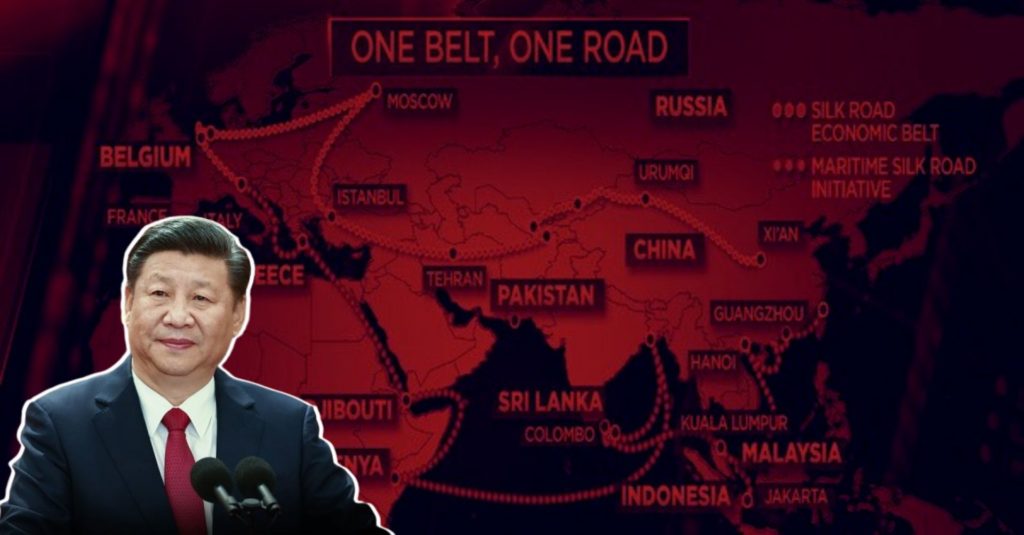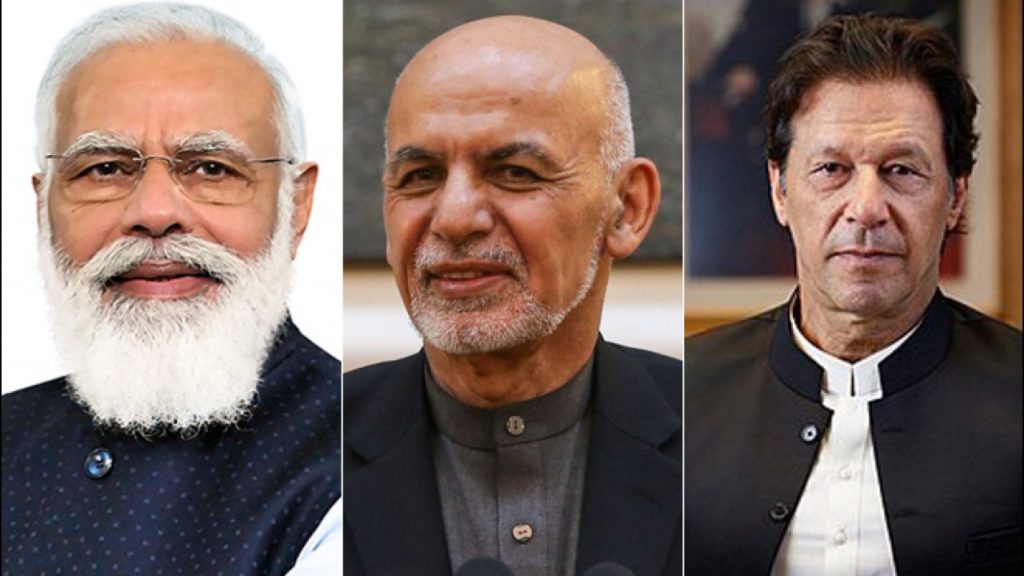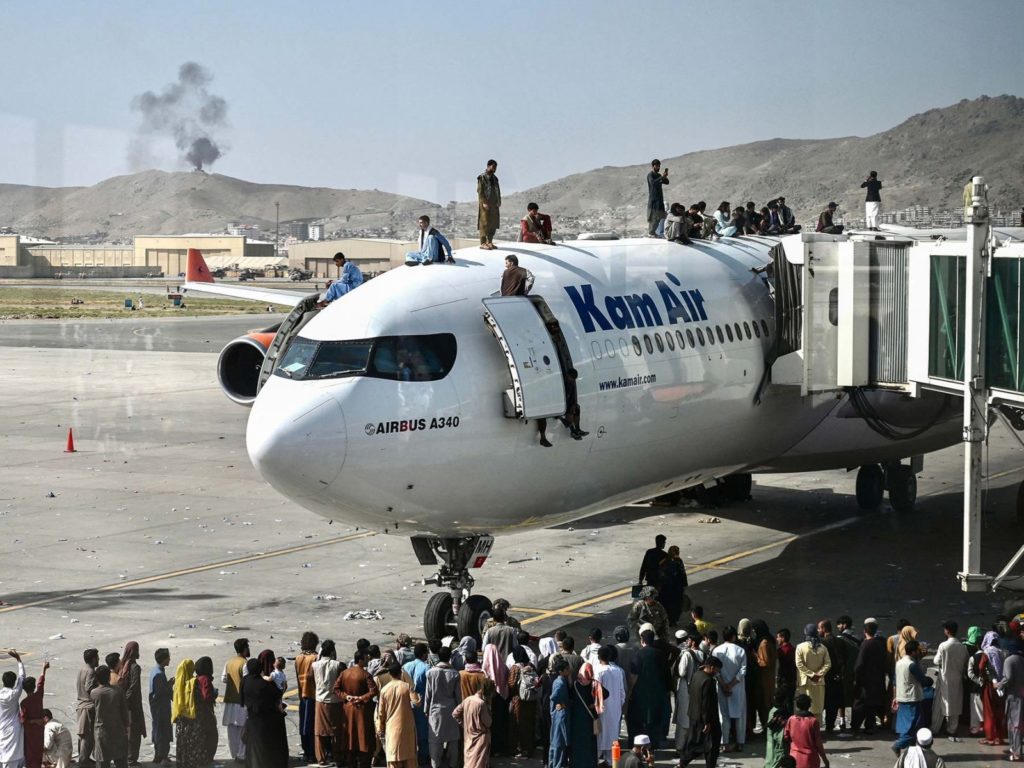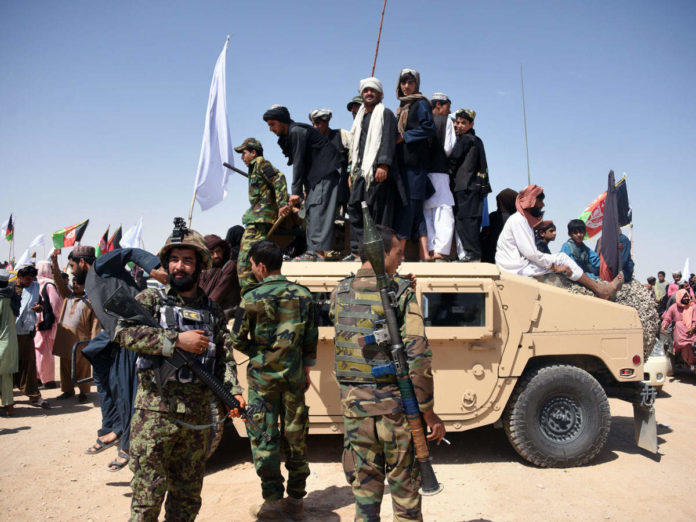This piece is in continuation to my previous article on the subject due to its huge implications on the region, especially Afghanistan and Pakistan and I feel it is imperative to highlight and elaborate further what will be the basic ingredients of the new Great Game in South and Central Asia.
The sudden and unexpected quick takeover of the Taliban in Afghanistan has shocked the world community especially when everyone was expecting some sort of resistance from Afghan national defense forces. The Americans and their allies had spent billions of dollars to build a massive Afghan security structure with quite a modest amount of modern weaponry at their disposal. There was no resistance at all and it was just a walk over for Taliban. There might be lot of analysis being carried out on this collapse and such a massive failure will continue to be discussed but the bottom line is “you can’t buy morale and courage with money”. Unfortunately, a blame game started once again and certain media outlets became vocal against Pakistan trying to demonstrate that whatever happened in Afghanistan, is because of Pakistan who was ‘not supporting NATO and allied forces the way it was supposed to be’. The western media outlets and policy makers tend to forget easily the couple of huge related factors specially the above said blame game scenario.
- China factor – BRI via investment globally: China has achieved its objective very well during the past 20 to 25 years by focusing on its economy and poverty reduction. China did not get involved in conflict thus it got enough time to strengthen its economy and military might. On the other hand, Western nations including Europe, NATO and US were heavily involved in many conflicts in the past 25 years such as the invasion of Afghanistan, Invasion of Iraq, the Arab Spring, Libyan intervention, Syrian conflict, and huge efforts were also being taken for the containment of China. At the same time that trillions of dollars were spent on wars and regime changes, China was getting itself ready to take up the mantle of the possible next superpower in world arena. When the nations that were destroyed or on sustaining mode due to wars, terrorism and corruption, China offered the Belt and Road Initiative (BRI) to deprived nations and adopted strategy of investment rather than dictation. Since China is clearly challenging the US status as sole superpower, the ultimate attempt from US and allies is to contain the rise of China as the new challenger. For this reason, since China does most of its trade via the South China Sea, all strategic games and plans were laid out around that part of the world with help from Australia, Japan, Philippines, South Korea, Taiwan and India. The formation of the military QUAD is a clear and recent example in this regard. Due to the strategic importance of Pakistan for China as an outlet to the Middle East keeping in mind a possible South China Sea blockade by QUAD, China has the utmost interest in Pakistan and its stabilization in geo-economical and geo-political terms. That is why China Pakistan Economic Corridor (CPEC) was initiated, it is the flagship project for the Belt and Road Initiative.

The launching of CPEC is an attempt to extend Chinese access to the Arabian Sea from where China could easily get access to the Middle East, Europe and Africa. In fact, this is ‘the great escape’ for the Chinese because they will fulfill multiple objectives via CPEC like developing the western part of China and linking to the Arabian Sea, strategic alignment with Pakistan to contain regional adversaries and finally negating the QUAD plans laid out in and around the South China sea. Pakistan will get enormous benefits after CPEC takes off. So, having said the above, China’s interest will merge with Pakistan’s interest very well and it is an undeniable fact that Pakistan’s interest in Afghanistan is a very critical factor due to Indian and other adversaries using Afghan soil against Pakistan since decades, even from the creation of Pakistan.
The CPEC project coming under threat is being solely initiated from Afghan soil by the adversaries. So, China is an equal stake holder with Pakistan as far as Afghanistan politics is concerned since Afghanistan is the central point for BRI and CPEC vision. The above factors clearly show that China is a stake holder when matters related to Afghanistan comes into picture either economically or strategically.
- Russian Factor: Russia was the prime victim of the Soviet Afghan war in 1979; that war resulted in the collapse of the Soviet Union. It is said that since Americans think that their chaotic withdrawal from Vietnam was due to the Russians, so they equalized it in Afghanistan that resulted in the end of the USSR. Keeping this factor in mind, Russia is also one of the stake holders in Afghanistan and has done and will do whatever is needed to ensure that western and NATO forces do not succeed in Afghanistan. Russia has a lot of influence inside Afghanistan and major States in CIS have common border sharing with Afghanistan that gives direct access to Russians for trade and military standpoint. Since the Russian factor is present in the equation, why do all western media outlets and some policy makers put the blame solely on Pakistan for the failure of the NATO and Allied campaign. In fact, it is Russia that is the major stake holder when it comes to the rivalry and hegemony of the Empires.

- India Factor: India has emerged as one of the trusted comrades of western allied forces in the present Great Game scenario and moreover, India has also established deep relations with all Afghan regimes since the partition of the sub-continent. This Indian interest in Afghanistan is a spoiler rather than a helper. Although India has spent billions in Afghanistan in massive infrastructure related projects, the main idea was to create maximum leverage amongst the Afghan people and to ignite rivalry against Pakistan. Indians have done this task very well since many decades as this is clearly visible from Afghanistan’s attitude towards Pakistan. Moreover, India wanted to destabilize Pakistan using Afghan soil by creating terror outfits like TTP, BLA and other available terror groups present in Afghanistan.
The bloody insurgency that Pakistan observed in the past decade was ultimately an Indian sponsored campaign for destabilization of Pakistan and to repeat their vicious plans as per Akhand Bharat ideology. One worrisome fact that needs to be elaborated for the benefit of readers is that the emergence of the Rashtriya Swayamsevak Sangh (RSS) and Hindutva ideology has expansionist plans westwards. The “previous” Indian investment in Afghanistan and military base in Tajikistan is the clear example of such ambitions.
We all know that India is surrounded by oceans on three sides. On the north are the Himalayas and China where Indians always feel a threat from. On the eastern side is Myanmar and the ASEAN nations, these are not really of much interest to India for many reasons. The only way where they would like to expand is the West towards Central Asia and West Asia but here Pakistan is located like a strong foothold in their way.
Just consider for a moment if Pakistan would not be located in their way, the Indian RSS ideology would have spread like wildfire and would have captured Central Asia, perhaps even Iran and the Gulf would be under existential threat. The historical hatred for Muslim invaders coming from Central Asia, Arabian Gulf and Iran has always been pricking in the hearts and minds of RSS extremist leaders. They seek revenge for these invasions from Central Asia for thousands of years. We often hear an Indian retired General in Indian TV talk shows telling students and viewers to never forget what “these Mughals and other rulers did to our ancestors hundreds of years ago, keep this in mind always and never forget it.”

- Iran Factor: Iran is one of the neighboring countries that shares a major portion of the border after Pakistan. Iran is the equal stake holder in the region as far as Afghanistan is concerned. Previously Iran was closer to the Northern Alliance and also had an interest against the previous Taliban regime, but recently this scenario has changed. Iran being not on same terms with Western nations and the US due to sanctions and collapse of the US Iran nuclear deal, the gap was filled by China who announced a plan for spending hundreds of billions of dollars during the next couple of decades. Moreover, China has interest involving Iran in BRI program and connecting the region utilizing all Central Asian states. Having said that, Indian investment in Iran faded away when India and China stood eyeball to eyeball in recent time as well as the fact that India is an important part of the QUAD. With heavy Chinese investment in Iran, the visibility of Indian investment in Iran on Chahbahar and highway to Afghanistan via Iran projects are simply nullified. On the other hand, Pakistan has improved its relations with Iran and a better border management is in place. There is no doubt that the Chinese investment in Pakistan via CPEC played a role in this regard.
Concluding Remarks:
As mentioned previously the New Great Game factors are mainly the SCO forum to challenge NATO, initiation of BRI and Pakistan’s CPEC being flagship project and rise of the Taliban in Afghanistan along with diminishing/evaporating Indian investments in Afghanistan, and these factors are more than enough to create a new bloody and tricky game in the region. Pakistan has to be most vigilant on all fronts. Pakistan has turned out to be the ultimate beneficiary of the current situation in Afghanistan, predominantly due to the Indian factor being neutralized. The question whether the Taliban can form a legitimate government or not, or how the bilateral relationship with Pakistan will look like under Taliban rule or how the Taliban Government maintains her relations with Pakistan is a time bound factor which should be watched and seen in the future.
Pakistan must utilize the space and leverage created in the aftermath of the current situation in Afghanistan. This leverage might be an increased influence in the global arena in economics and foreign policy domains. India and other hostile elements will try to create challenges. The impact of such a new Great Game will be visible very soon in all arenas and throughout the region. Pakistani nation must be geared up and be vigilant for the challenging times that lie ahead.




